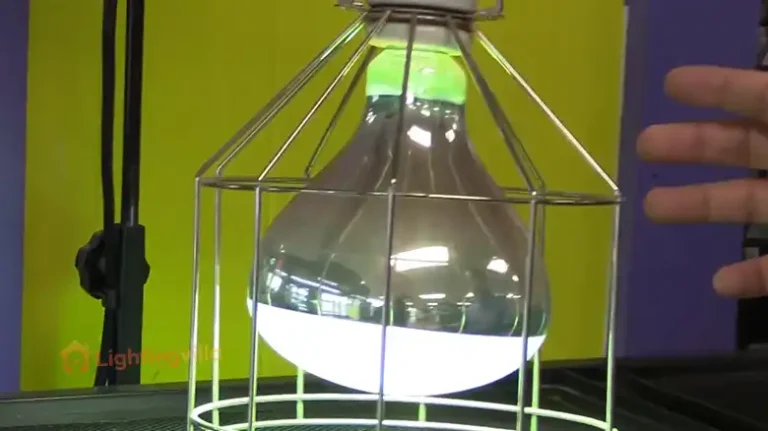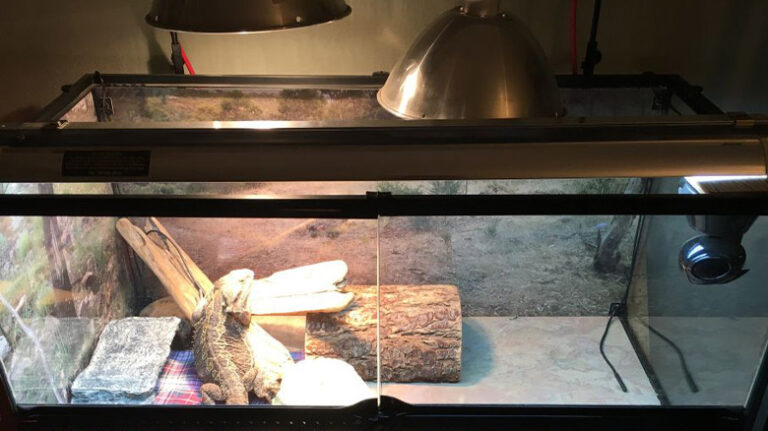Can You Get A Tan From A Reptile Lamp? Is the Lamp Matter of Concern?
Turtles and some other reptiles, whether young or old, require UV rays to survive. Adult turtles require them to sustain their shell health, while baby turtles require them for healthy growth. Do UV rays, on the other hand, have any health effects on us? Is it possible that the UV rays used by reptiles are harmful to our health? What are the ramifications?

If you love reptiles or are interested in keeping one as a pet, then having access to UV lights may be important. If you have the option of installing a reptile lamp at home, do they help you get a tan? Or is that just another myth? Let’s take a closer look at our investigation into whether or not you can get a tan from a reptile lamp and what the pros and cons of doing so might be.
Let’s find out!
Are Reptile Lamps Safe For Humans?
Humans aren’t harmed by occasional or minor exposures to reptile UV lamps. If your workplace or bed is close to the turtle’s basking area, however, you will be exposed to damaging UV rays. Modern Reptile UV lamps, on the other hand, emit UVB rays with shorter wavelengths, which are not harmful to people.
Does Any Human Health Risks From Using Reptile UV Lights?
Humans may be exposed to reptile UV lights in a variety of ways. For starters, extended exposure can accelerate the aging of your skin and cause skin tissues to burn. Second, the worst-case situation is that you might develop skin cancer, but the risks are small. These UV lamps release radiation in the same way that the sun does. As a result, the tanning.
UV lamps produce two types of UV light:
Ultraviolet A (UVA)
These rays have greater wavelengths than visible light and are invisible to the naked eye. Turtles, on the other hand, can see it. Skin ageing and wrinkles are accelerated when exposed to UVA radiation for longer periods.
Ultraviolet B (UVB)
These rays, also known as UVB, have a shorter wavelength and are thus undetectable to the human eye. Your skin will be burned if you are exposed to UVB radiation.
Your turtles require both of these rays, even though they cause more harm than benefit to us. However, it has been shown that long-term exposure to such rays can cause the turtle’s shell to burn.
Ultraviolet C (UVC)
Sun rays contain UVC, which is damaging to both reptiles and people. UVC rays are not emitted by reptile UV lamps, which is good news.
Can You Get A Tan From A Reptile Lamp – Effects of Using Reptile Lamp
UV radiation increases the formation of melanin in our bodies, which darkens and tans our skin. Reptile UV lamps, on the other hand, can only target specific regions at a time, so they won’t give you a full-body tan.
UVB rays, which are shorter in wavelength and cause more harm than good to human skin, are also present in reptile UV lamps. Some people who are allergic to UV light will get rashes and burns very immediately.
So getting tanned with reptile UV lamps might not be the smartest idea.
Reptile Lamp for Skin
Also, Reptiles, like humans, require rest. You should leave the lights on throughout the day and switch them off at night. Overexposure can lead to hypercalcemia or an excess of calcium in a reptile’s body. Hypercalcemia causes pyramiding in turtles. The same thing goes for your body too.
Reptile lamps release heat in addition to UV radiation. And leaving them on all the time will cause your skin to burn. Too much heat causes your skin to dry out, resulting in poor skin and health.
Reptile Lamp Hurts Eyes
UV radiation from reptile lamps may harm human eyes, producing both short- and long-term vision difficulties. UV rays can harm the retina by passing through our cornea, causing cataracts and photokeratitis.
The odds of the handler developing cancer as a result of reptile UV lamps are quite slim. The impact of these lights on your eye, on the other hand, cannot be claimed to be the same. Overexposure to UV rays, whether short-term or long-term, strains your eyes and causes blurriness. Furthermore, long-term exposure to this level of light can cause cataracts and photokeratitis.
Reptile Lamp and Cancer
Because Reptile UV lamps aren’t as strong as other radioactive equipment like X-Ray machines, they’re unlikely to pose cancer. However, as we have stated, we cannot eliminate the possibility in the event of long-term exposure.
According to medical research, UV radiation induces basal cell carcinoma (BCC) and squamous cell cancer (SCC). These are the cancers that are caused by UV radiation exposure to the skin.
Sunburn is caused by excessive UV radiation exposure. And our bodies will try to compensate by mending tissues, which they accomplish by producing new cells in the sunburned region.
Frequently Asked Questions
Can I tan with a UVB lamp?
The skin appears browned and dark when the melanin is darker. UVB tans people in a different way. UVB promotes an increase in melanin formation in the skin as well as other alterations in the cells that retain melanin. The skin darkens or tans as a result of the UVB impacts.
Are reptile UV lights safe for humans?
Damage to skins (sun damage and related consequences) and eyes are the primary dangers connected with Ultraviolet lights (photo-keratoconjunctivitis).
Can I tan from a heat lamp?
No, an infrared heat lamp will not give you a tan. You can’t acquire a tan from any type of heater, in fact. Ir heaters only release infrared radiation, which is what you feel warm from, but UV light is required for tanning.
Can I use a UV lamp to tan?
Reptile bulbs are intentionally engineered to pass UVB and some UVC (the objective is to disinfect reptiles), thus they are not appropriate for tanning.
Final Say
Although UV lights are beneficial to reptiles, they can cause harm to a handler’s body if exposed for a more extended period. These lights emit UVB rays, which are harmful to humans as it causes a rapid build-up of melanin in our body. Along with skin damage, light emitting from reptile UV lights also causes short-term and long-term vision problems.
Do not gaze directly into the UV lights and keep your distance from the UV lights. Turn them off during the night to avoid any electrical mishaps in the dark. Follow these simple pieces of advice, and you will be safe from reptile UV lights in your room.






